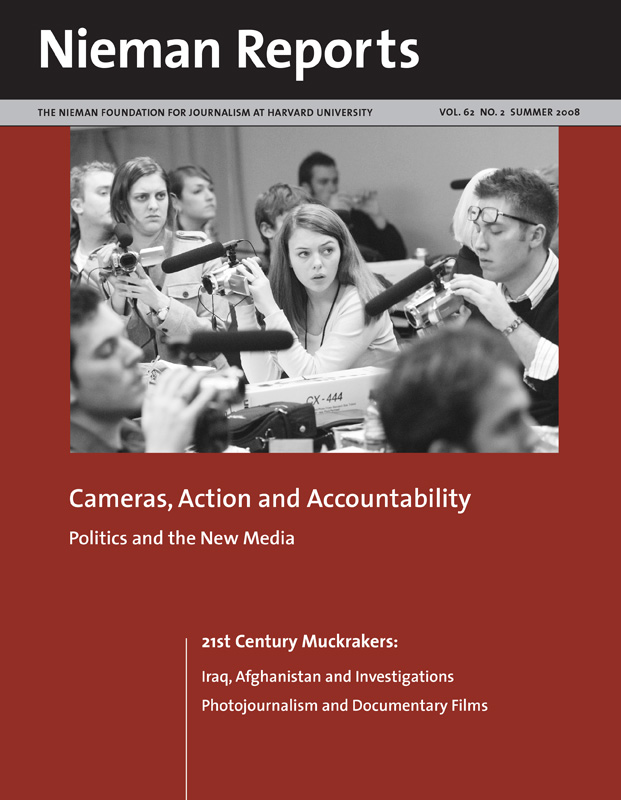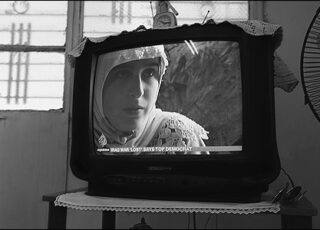ISSUE
Summer 2008

Cameras, Action and Accountability
"The Web is more important in this presidential campaign and the Pennsylvania primary than the newspaper. Think Web first, and then think newspaper, because you're going to do something different for the newspaper. I'm not saying the newspaper's not important, but first think Web, because if you don't think Web first, it's going to be too late to think Web."
